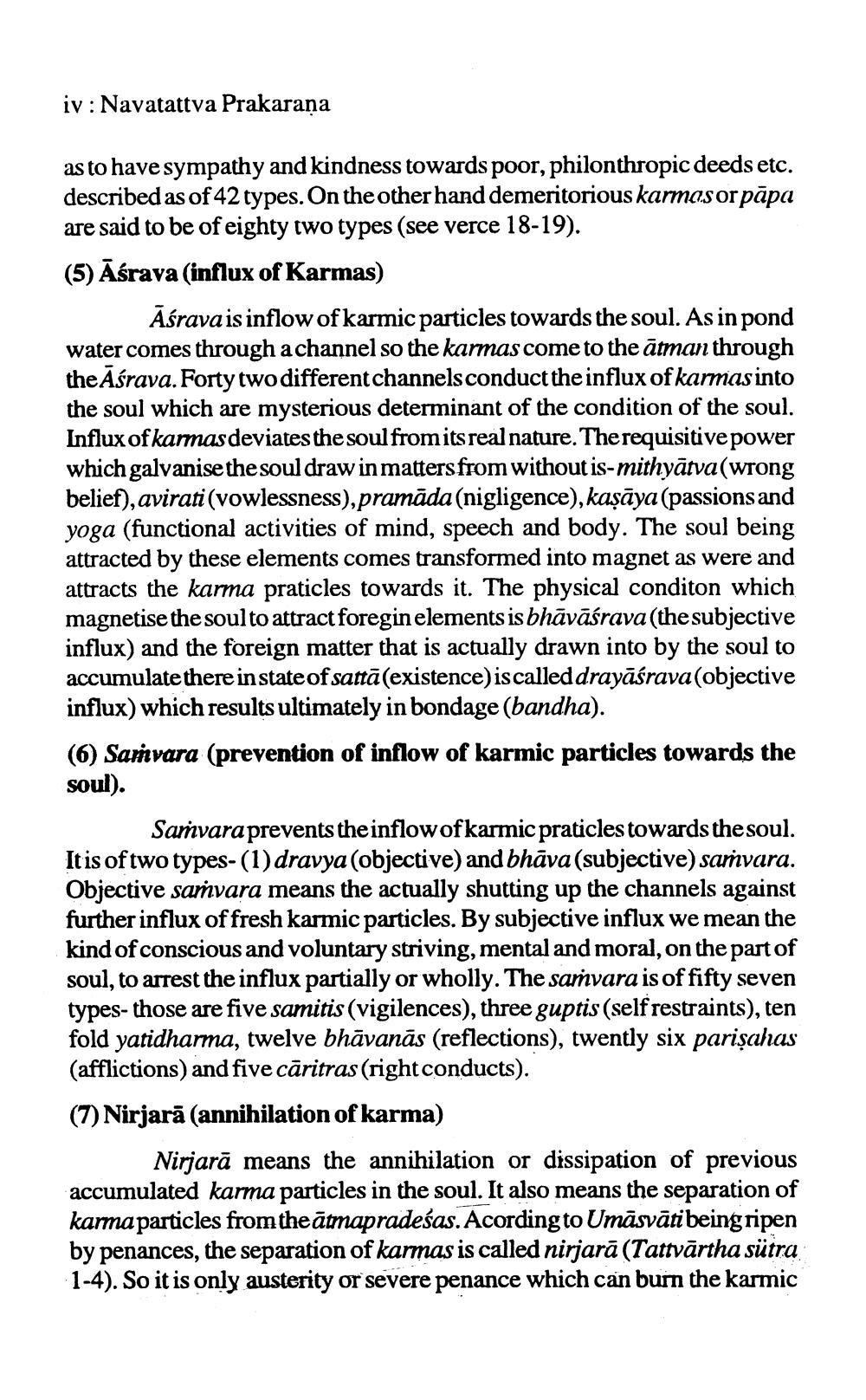Book Title: Navtattva Prakaran Author(s): Shriprakash Pandey Publisher: Parshvanatha Vidyapith View full book textPage 8
________________ iv: Navatattva Prakarana as to have sympathy and kindness towards poor, philonthropic deeds etc. described as of 42 types. On the other hand demeritorious karmas or papa are said to be of eighty two types (see verce 18-19). (5) Āśrava (influx of Karmas) Āśrava is inflow of karmic particles towards the soul. As in pond water comes through a channel so the karmas come to the ātman through theĀśrava. Forty two different channelsconduct the influx of karmasinto the soul which are mysterious determinant of the condition of the soul. Influx of karmasdeviates the soul from its real nature. Therequisitive power which galvanise thesoul draw in matters from without is-mithyātva(wrong belief), avirati (vowlessness), pramāda(nigligence), kaṣāya(passions and yoga (functional activities of mind, speech and body. The soul being attracted by these elements comes transformed into magnet as were and attracts the karma praticles towards it. The physical conditon which magnetise the soulto attract foregin elements is bhāvāśrava(the subjective influx) and the foreign matter that is actually drawn into by the soul to accumulate there in state of sattā(existence) is called drayāśrava(objective influx) which results ultimately in bondage (bandha). (6) Sanvara (prevention of inflow of karmic particles towards the soul). Sarvara prevents the inflowofkarmic praticles towards the soul. It is of two types-(1)dravya (objective) and bhāva (subjective) samvara. Objective saṁvara means the actually shutting up the channels against further influx of fresh karmic particles. By subjective influx we mean the kind of conscious and voluntary striving, mental and moral, on the part of soul, to arrest the influx partially or wholly. The samvara is of fifty seven types- those are five samitis (vigilences), three guptis (self restraints), ten fold yatidharma, twelve bhāvanās (reflections), twently six parişahas (afflictions) and five cāritras (right conducts). (7) Nirjarā (annihilation of karma) Nirjarā means the annihilation or dissipation of previous accumulated karma particles in the soul. It also means the separation of karma particles from the ātmapradeśas. Acording to Umāsvāti beingripen by penances, the separation of karmas is called nirjarā (Tattvārtha sütra 1-4). So it is only austerity or severe penance which can burn the karmicPage Navigation
1 ... 6 7 8 9 10 11 12 13 14 15 16 17 18 19 20 21 22 23 24 25 26 27 28 29 30 31 32 33 34 35 36 37 38 39 40 41 42
